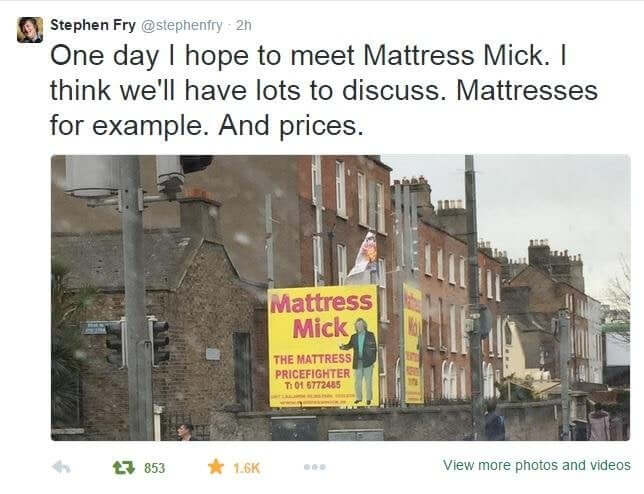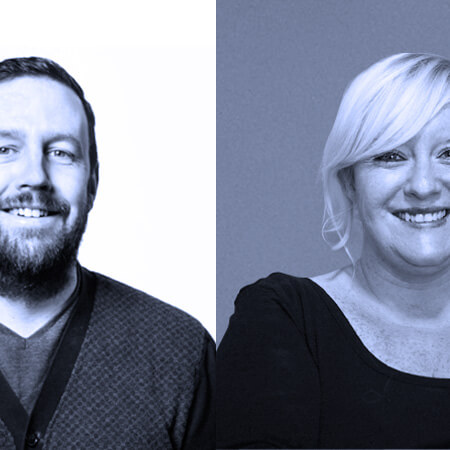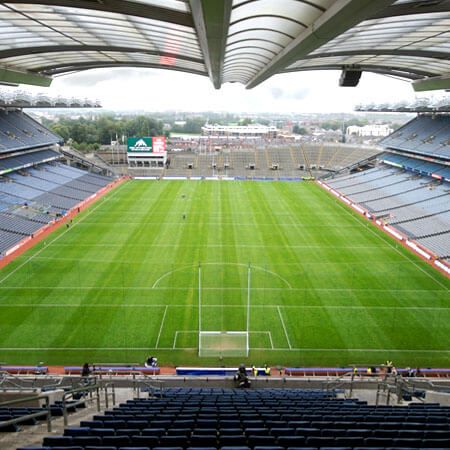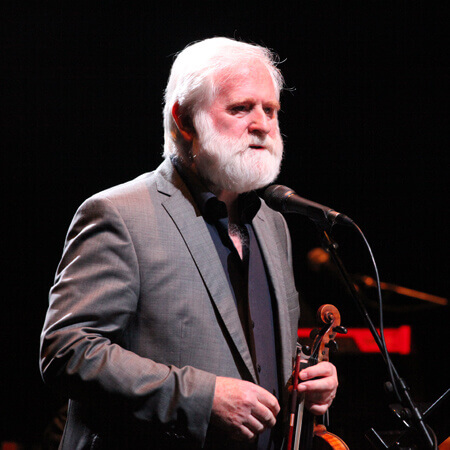It’s fair to say Mattress Mick is something else.
You are probably familiar with the viral videos and with the persona of the madcap mattress salesman. Are there any rules to what they do? “We want to break the rules” says Mick.
Yet within the madness there is something that resonates with us. And it’s this which makes Mattress Men, the new behind the scenes documentary, such a compelling prospect. In part, the film gives us the backstory. How did this madness come about? How could one man become so inextricably associated with mattresses and great deals? Mattress Men allows us to step back from the persona to see the creators at work.
We want to break the rules
Dublin.ie were fortunate enough to be able to interview Mattress Mick and Paul Kelly together. Paul’s a key figure in the story. The film is as much his history as that of the mattress salesman. While Mick is the face of the enterprise, Paul is the man behind the camera. He’s directed and scripted all the videos. But the persona, they diplomatically state, was a joint idea.

Paul Kelly and Mattress Mick shoot another video
When you speak with the two men you get the sense of a fruitful creative partnership built on trust and respect. And giving up isn’t in their vocabulary: “We scrap… and we love one another”. Underdogs in the truest sense. So far, a very Dublin story. And it’s very Dublin. Paul resides in Coolock and Mick in Clontarf. But Mick was reared just behind their store on Pearse Street. It was a property originally purchased by his Grandfather, which eventually became a drapery story run by the family.
So how did the Mattress Mick phenomenon start? This story goes back to the recession when salesman Michael Flynn was finding things difficult. Yet Mick had an idea: a bed-based store, and enough experience to know it could work. Paul had his own troubles at the time, some financial and some personal. However, when they first decided to work together, they knew there was something special.
We scrap… and we love one another
Apparently there was a lot of learning as they went. Paul wanted to “American-ise” Mick, but this had to be refined for an Irish audience. This is how they decided to leave in the mistakes, to keep the ad-libs, and keep things generally unpolished. And so a style developed – “People can relate to the mistakes” says Mick. And relate they did. After only a couple of years of working on a shoestring marketing budget they noticed they were getting more attention than they could have hoped for. Not many mattress stores can boast mention in a Stephen Fry tweet.

And how did the film come about? It first came through a chance meeting between Paul and director, Colm Quinn. Colm, as it happened, was a big Mattress Mick fan and after seeing the Pearse Street showroom, immediately knew there was a story to be told with two captivating characters. It was meant to be a 15 minute short film, but this was quickly shelved. The story was much bigger, and it would take three years to tell. Did they ever regret agreeing to be part of such a project? “No, this was the right path” says Paul. And there’s the feeling there is more to come.



